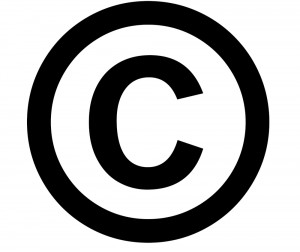A Moral Defense for Copyright Breach?
The estate of Joseph Goebbels, Adolf Hitler’s minister of propaganda, is suing Random House for breach of copyright and demanding royalties over a biography of Goebbels which was published in Germany in 2010; the English edition is scheduled to be published in the UK in early May. The biography quotes extensively from his diaries, which are copyrighted until the end of 2015. Cordula Schacht, daughter of Hitler’s minister of economics who was acquitted at Nürnberg, represents the estate and initiated the suit. Random House initially agreed to pay 1 percent of the net retail price to the estate but later retracted, based largely on moral grounds.
Rainer Dresen, general counsel of Random House Germany, believes paying for the excerpts would be immoral, especially considering the role of Goebbels in the Nazi regime. As Dresen told the Daily Mail, “[w]e are convinced that no money should go to a war criminal. This war criminal didn’t really commit acts by his hands, but by his words. These words prolonged the war… [and] should not bring any money… to [his] heirs.” However, Dresen suggested to Schacht that royalties could be paid if she donated them to a Holocaust charity.
The author of the biography, Peter Longerich, the professor at Royal Holloway’s Holocaust Research Centre, believes this case has important censorship implications with respect to historical documents. “If you accept that a private person controls the rights to Goebbels’ diaries, then – theoretically – you give this person the right to control research,” the Guardian reports, “Control of the rights could have included an inspection of the manuscript before publication, which did not happen in this case. But generally speaking we cannot allow such control from private persons, whatever their interests are. In this case, we are dealing with the daughter of a cabinet colleague of Mr. Goebbels. This is an absolutely unacceptable situation. It’s a question not only of morality, but of professionalism for a historian.” Yet the system of copyright law does not uphold a moral code or judge the recipients of its protection, and owners of copyright are entitled to an economic benefit.
Random House’s legal argument questions the ownership of the copyright by Goebbels’ estate. Hitler’s publisher had intended to publish the diaries posthumously, but the offices were destroyed by Allied bombing raids and no record exists of these plans. However, based on evidence within the diaries, Dresen argues the Bavarian government should own the copyright.
The case will be heard in the UK on Thursday.
More via The Guardian.
Tags: Copyright, infringement, intellectual property, licensing, morality, propaganda, Property, royalties, war crime




Comments